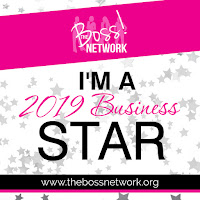Creating, Crafting and Mental Health by Rhonda Turner
Rhonda Turner is the CEO of The Rustic Brush, and Owner of The Rustic Brush – Memorial and Pearland locations. She is also a 29-year veteran Sergeant with the Houston Police Department. Rhonda empowers women by cultivating new entrepreneurs to become business owners and making their dreams a reality.
There’s a phrase written in large letters on my chalkboard in one of my studios that reads, “Crafting is cheaper than therapy!” A true statement and most guests who read it would have a good laugh afterwards. But what if we really explored this idea in the context of the current times of being more conscious of self-care and mental health? How can a recreational activity such as crafting be suggestive as an aid in mental health development and treatment? What if crafting is therapy?
Traveling back into my history, I have always loved art in some form or another. Growing up, I used to love to write and would scribble what I couldn’t express out loud. If I needed to scream, my pen was a fierce, shouting voice, echoing loudly on the pad. If I needed to cry, words fell from my eyes like rain and soaked my paper. When I felt joy, my notepad was a beaming face with a bright smile from line to line. I didn’t know it at the time but that was therapy for me and although I don’t write as much now, I still do crave creating things.
I believe this craving lead me straight to The Rustic Brush and back to doing what I love, and doing things we love releases dopamine, “the feel-good neurotransmitter”. There is tons of research on the web regarding the benefits of crafting but hearing real stories at my studios confirms what I always suspected; crafting is therapy and is a positive benefactor to self-care and mental stability.
I can remember speaking with an engineer in an executive position who wanted to come in and craft. Although I was closed that day, I was in the studio prepping for a future workshop, so I let her come. While she crafted a beautiful Round Board, we engaged in an enlightening conversation. She informed me that her therapist actually prescribed “creating something” as an aid in dealing with the stress of her career. The first place she thought of was The Rustic Brush.
Right before my eyes, I saw a transformation from when she entered rather closed up with few words to when she exited with open laughter, relaxed spirit and freely conversing. In those 3 hours, she concentrated on every stage of development and lost track of time. Psychologists coin this type of focus as “flow”. In Psychology Today, flow (in the zone) is defined as:
the mental state in which a person performing some activity is fully immersed in
a feeling of energized focus, full involvement, and enjoyment in the process of the activity.
Her flow resulted in the masterpiece she took home that day, and she decided on the details and crafted herself.
That’s just one example but there are hundreds more. From guests who craft with us after a traumatic experience to therapists who bring their mental health groups to us for crafting therapy, crafting has been scientifically proven to reduce stress, boost mood and self-esteem, promote relaxation, and improve overall mental health. I am in no way suggesting skipping therapy and crafting instead. I am, however, suggesting that crafting as a therapeutic activity to aid in self-care and balancing mental health. After all, crafting is cheaper than therapy.
I can remember speaking with an engineer in an executive position who wanted to come in and craft. Although I was closed that day, I was in the studio prepping for a future workshop, so I let her come. While she crafted a beautiful Round Board, we engaged in an enlightening conversation. She informed me that her therapist actually prescribed “creating something” as an aid in dealing with the stress of her career. The first place she thought of was The Rustic Brush.
Right before my eyes, I saw a transformation from when she entered rather closed up with few words to when she exited with open laughter, relaxed spirit and freely conversing. In those 3 hours, she concentrated on every stage of development and lost track of time. Psychologists coin this type of focus as “flow”. In Psychology Today, flow (in the zone) is defined as:
the mental state in which a person performing some activity is fully immersed in
a feeling of energized focus, full involvement, and enjoyment in the process of the activity.
Her flow resulted in the masterpiece she took home that day, and she decided on the details and crafted herself.
That’s just one example but there are hundreds more. From guests who craft with us after a traumatic experience to therapists who bring their mental health groups to us for crafting therapy, crafting has been scientifically proven to reduce stress, boost mood and self-esteem, promote relaxation, and improve overall mental health. I am in no way suggesting skipping therapy and crafting instead. I am, however, suggesting that crafting as a therapeutic activity to aid in self-care and balancing mental health. After all, crafting is cheaper than therapy.
Learn more about Rhonda at www.therusticbrush.com
Instagram: @therusticbrushmemorial
Instagram: @therusticbrushmemorial





Comments
Post a Comment